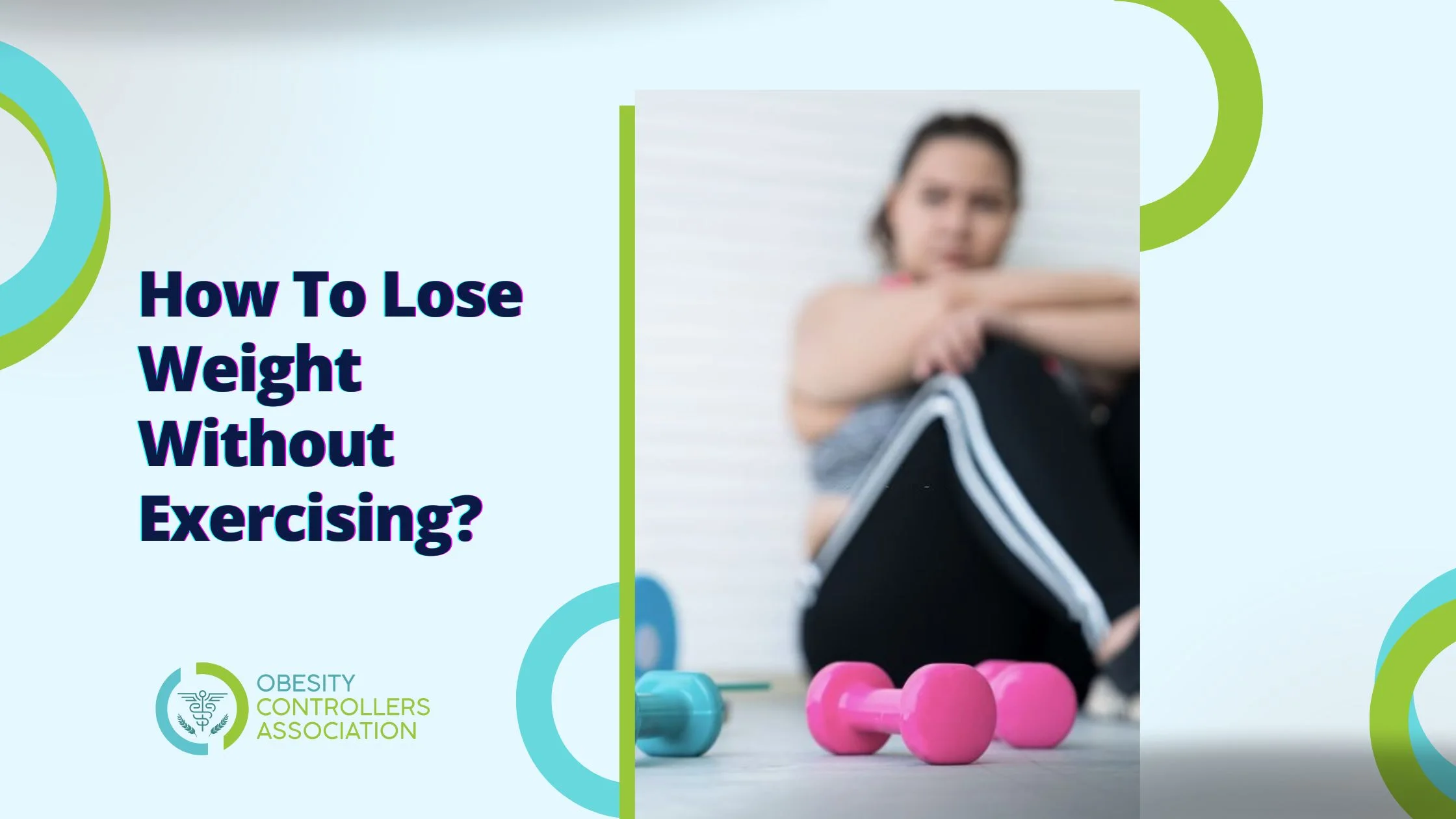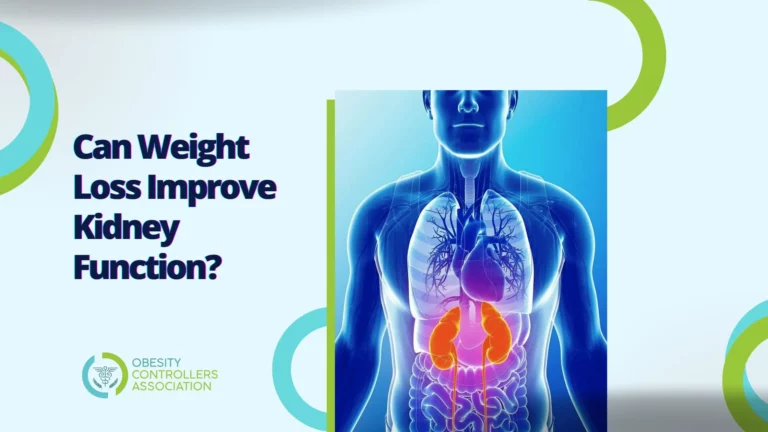How To Lose Weight Without Exercising? Does It Seem Possible?

Exercise is the time-old solution for weight loss. The importance of it in regulating your cardiovascular functions shouldn’t be underestimated. At the same time, there can be occasions when you won’t feel like exercising and still want to lose weight.
It can be moments such as accidents, travel, or a lack of favorable situations. Here are some ways to lose weight without exercising. Go through the article to find out the methods and lose weight without sweating out!
7 Ways To Lose Weight Without Exercising
For many people, sticking to a diet and workout routine can be difficult. Still, there are several ways to lose weight without exercising. Here are some of the science-backed ways to lose weight without exercising:

1. Level up your drinking game
Yes. That is right. Even a seemingly simple process such as drinking water can help you increase your weight loss chances. Studies have proven that increasing water intake can aid in weight loss.
Such a study was published in the Obesity Journal in 2010 where the connection between water intake and weight loss in middle-aged and older adults was examined. As per this research, two groups of people were assigned, one with an increased water intake and another with a normal water intake.
After 12 weeks, it was found that those groups of people who had increased their water intake were found to have a considerable change in their weight. Drinking water can curb unwanted appetite by increasing a feeling of fullness. It can also ease the digestive process and help your metabolism to get into an active state.
Some tips to increase your water intake:
- Replace all your sugary drinks with water
- Experiment with different flavors in water
- Keep water bottles with you always.
- Connect the drinking habit to your routine
- Eat your water-eat more watery fruits and vegetables.
- Track water intake using an app.
2. Practice better sleep habits
Another seemingly simple yet most important way to lose weight is to increase the quality of your sleep. Neglecting sleep can have serious repercussions not only on your mental health but also on your physical health.
Not having enough sleep can lead to the disruption of certain appetite-regulating hormones such as ghrelin and leptin. It can also increase the production of stress hormones known as cortisol.
When your body undergoes fluctuations in these hormones, it can increase cravings and lead you to consume unhealthy foods. Not having sufficient sleep can also increase the risk of other conditions such as obesity and diabetes. Here are some tips to practice better sleep habits:
- Follow a scheduled routine for sleep
- Avoid any kind of screens before sleep time
- Make your room a relaxing environment
- Do not eat the food right before you sleep
- Set up some peaceful music to aid in sleep
- Practice guided meditation before you sleep
3. Increase your protein intake
Protein can play a major role in helping to reduce your weight. Studies show that protein might be affecting certain hunger hormones in your body such as ghrelin and GLP-1. A research paper published in the Journal of the American College of Nutrition in 2005 found that protein intake can help overweight and obese people in losing weight without the need for exercise.
The study was conducted among thirty women whose BMI was at least 25 kg/M2 and were between the ages of 25-60 years old. Here are some protein-rich foods that you can include in your diet:
- Eggs
- Poultry- Chicken, duck, turkey, goose, etc
- Lean meats-Beef, pork, veal, etc
- Dairy products- Milk, Greek yogurt, cottage cheese, cheese, etc
- Legumes and beans- Lentils, chickpeas, tofu, etc
- Nuts and seeds- Walnuts, almonds, hazelnuts, cashews, sesame seeds, etc.
4. Limit your sugar consumption
Consuming too much sugar is linked with weight gain. One of the main reasons behind this is sugar is high in empty calories. Studies show that 2 tablespoons of sugar might contain 120 calories. And there are no nutrient benefits from using sugar.
Also, it can raise your blood sugar levels which can lead to insulin resistance. Some research has also found that sugar can lead you to overeat as it can decrease your brain’s capacity to feel full. Apart from all this, many studies have proven the direct link between sugar consumption and obesity. Here are some methods to limit your sugar intake:
- Reduce the intake of sugary drinks
- Cut back on sugary desserts
- Consume full-fat foods
- Limit the usage of sauces with added sugar
- Consume more whole foods
- Replace sugar with honey or healthy alternatives
5. Watch out for your portion sizes
Portion sizes have a crucial role in regulating the amount of food you consume. Studies have shown that eating large amounts of food can lead to weight gain. A research paper published in the American Journal of Public Health in 2002 validated this.
According to this study, there has been an increase in portion sizes since the 1970s and it grew rapidly in the 1980s. This also contributed to a direct increase in the cases of obesity and overweight.
By using smaller portions of unhealthy food you can manage your weight gain. It is suggested that using smaller plates for eating can help you to limit the portion size and thereby calorie intake.
6. Ditch junk food addiction
One of the ways to lose weight without exercising is to ditch your junk food addiction. Research shows that consuming junk food can lead to overweight and obesity issues. These food items have no nutritional value and can add up to calories.
Certain ingredients in these items can cause addiction which will tempt you to snack upon these items endlessly. If you want to lose weight, do not buy junk food. Keep any remaining items out of your visible space.
7. Get into the habit of mindful eating
In this digital age, we tend to eat in front of screens. But this habit is extremely dangerous to health. Eating mindlessly can lead to the intake of too many calories. So even after you are full, you tend not to stop eating.
Many studies have shown the relevance of mindful eating to combat weight gain. Practice eating without screens and give full attention to the process. This will help you understand when to stop eating and can aid in managing your weight.
Takeaway
On going through the article, you can find that there are many ways through which you can lose weight without exercise. These are helpful for those people who are unable to lose weight even after exercise or have any physical conditions that ban them from workouts.
By increasing your water intake, practicing better sleep habits, and controlling portion sizes, you can manage your weight. Also incorporating more protein and fiber in the diet and ditching processed foods are proven to have weight loss benefits. Whatever the method, practice all these with consistency for better results.
Also read: Can A Gastroenterologist Help With Weight Loss? Get To Know!
FAQs
Yes. Keeping a food journal or app to track your daily calorie intake will help you to be aware of your eating patterns and thereby can reduce weight.
Processed foods contain high amounts of calories, fat, sodium, and added sugar. All of these components can lead to weight gain.
Yes. Alcohol contains a lot of empty calories which leads to weight gain. Limiting its consumption can help you lose weight.
You can increase your water intake by keeping a water bottle, eating water-filled fruits and vegetables, and using an app to track your daily water intake.
Yes. Fiber can aid in digestion and accelerate your metabolic activity. This will naturally lead to weight loss.





